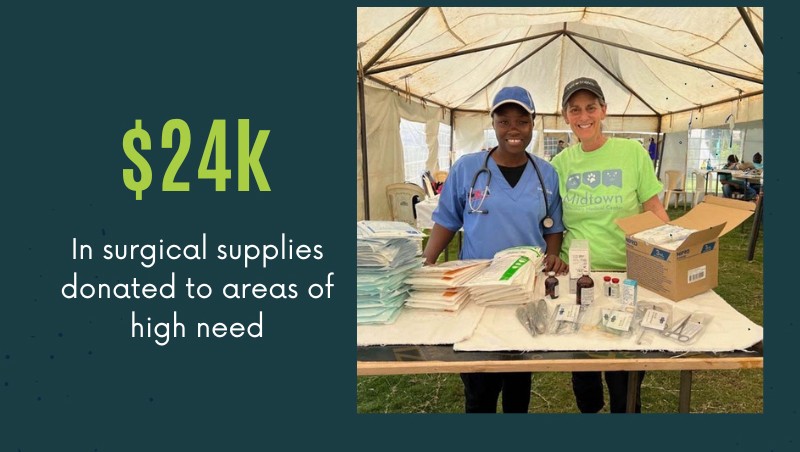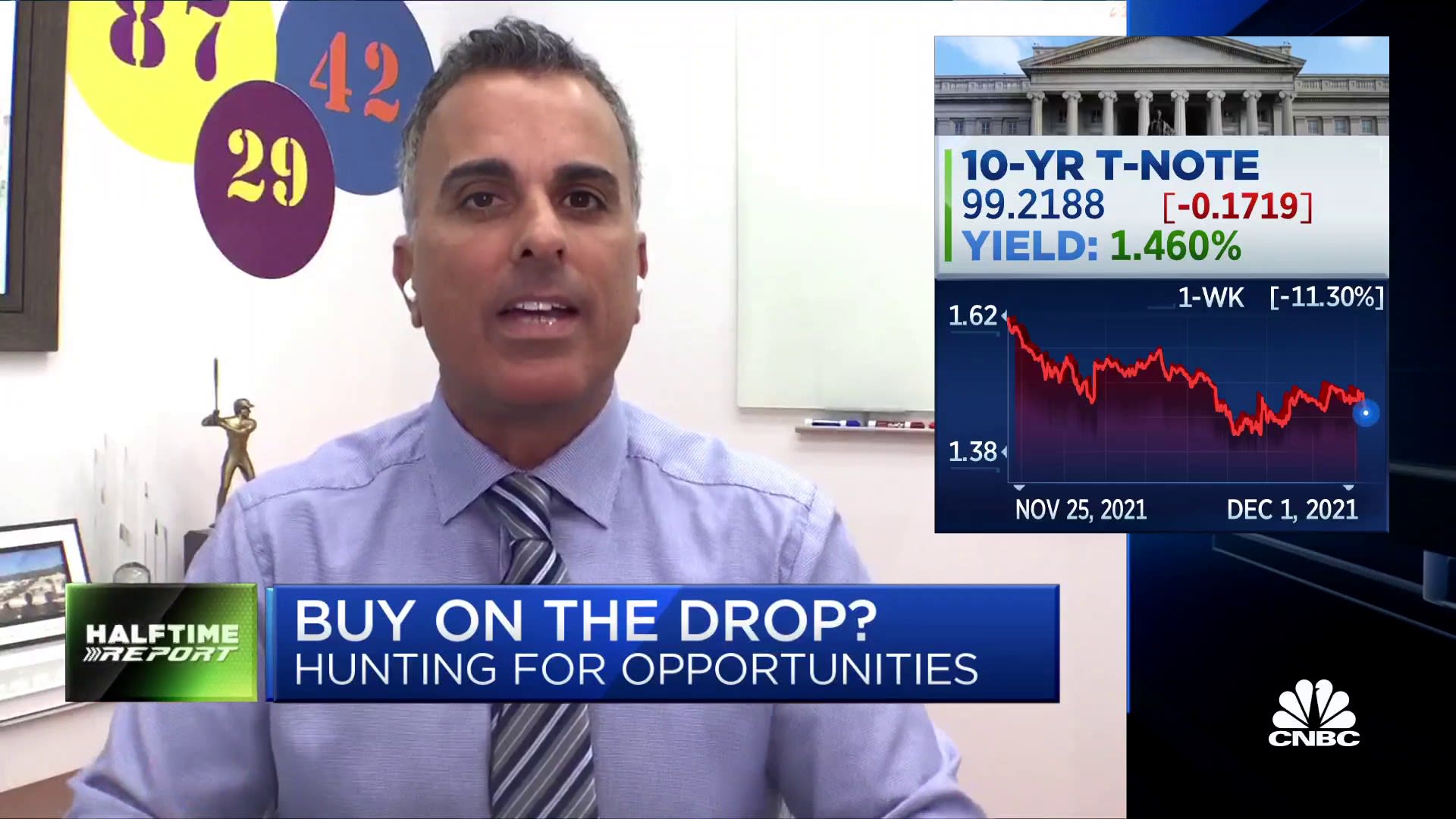The Impact Of Veterinary Watchdog Reports On Veterinarians.

Table of Contents
The veterinary profession, while dedicated to animal welfare, faces increasing scrutiny from veterinary watchdog reports. These reports, highlighting malpractice, negligence, or ethical breaches, significantly impact veterinarians' careers and the public's perception of the profession. This article explores the multifaceted effects of these reports and offers strategies for mitigation.
<h2>Reputational Damage and Career Consequences</h2>
The publication of a negative veterinary watchdog report can have immediate and long-term repercussions for a veterinarian's professional reputation. The impact extends far beyond a simple blemish on a record; it can fundamentally alter the course of a career.
- Loss of clients and referrals: Negative publicity, even if unfounded, can lead to a rapid decline in clientele. Existing clients may lose trust, and potential clients may choose other practices based on online reviews and word-of-mouth. This loss of referrals can severely impact income and practice sustainability.
- Difficulty securing malpractice insurance: A history of complaints or reported incidents, regardless of outcome, can significantly increase malpractice insurance premiums or even lead to policy non-renewal. This places an additional financial burden on the veterinarian and can restrict their ability to practice.
- Disciplinary actions by licensing boards (suspension, revocation): Licensing boards take veterinary watchdog reports very seriously. Depending on the severity of the allegations, a veterinarian may face suspension or even revocation of their license to practice, effectively ending their career. These actions often follow formal licensing board investigations and hearings.
- Damage to professional relationships and collaborations: Negative reports can strain relationships with colleagues, specialists, and other professionals within the veterinary community. Collaboration opportunities may diminish, limiting access to resources and support.
- Impact on career advancement opportunities: A tarnished reputation makes it significantly harder to secure promotions, leadership roles, or opportunities for specialized training and professional advancement.
- Negative publicity and online reviews: In today's digital age, the spread of negative information via social media and online review platforms can be devastating. Managing online reputation and responding effectively to negative comments is crucial. The effects of malpractice lawsuits, even if dismissed, can be felt long after the legal proceedings conclude.
The role of public perception is paramount. A single negative report, regardless of its accuracy, can severely damage a veterinarian's professional reputation, impacting their ability to attract and retain clients.
<h2>Increased Scrutiny and Regulatory Changes</h2>
Veterinary watchdog reports don't just impact individual veterinarians; they influence regulatory bodies and professional organizations to enact changes aimed at improving standards and accountability.
- Increased regulatory oversight and inspections: Following a series of high-profile cases highlighted in watchdog reports, regulatory bodies may increase the frequency and rigor of practice inspections, leading to increased administrative burdens for veterinarians.
- Changes to licensing requirements and continuing education mandates: Watchdog reports can prompt changes to licensing requirements, potentially requiring more stringent qualifications, additional examinations, or specialized training to maintain licensure. Continuing education mandates may also be expanded to address areas highlighted in the reports.
- Development of stricter ethical guidelines and professional standards: Reports exposing ethical lapses lead to the development of clearer and more stringent ethical guidelines and professional standards within the veterinary profession.
- Implementation of new reporting mechanisms and complaint processes: Regulatory bodies may implement improved reporting mechanisms and complaint processes to make it easier for clients to report concerns and for investigations to be conducted more efficiently. This enhances regulatory compliance and improves transparency.
These changes reflect a growing focus on veterinary ethics and the importance of upholding the highest standards of care.
<h2>Defensive Medicine and Increased Costs</h2>
The fear of negative veterinary watchdog reports and subsequent malpractice lawsuits can lead to a phenomenon known as defensive medicine.
- Increased testing and procedures to avoid potential legal issues: Veterinarians may order more tests and perform more procedures than strictly necessary to avoid potential accusations of negligence. This increases costs for both the practice and the pet owner.
- Higher malpractice insurance premiums: As the risk of lawsuits increases, so do malpractice insurance premiums, adding significant financial strain on veterinary practices.
- Enhanced record-keeping and documentation practices: Veterinarians often implement more rigorous record-keeping and documentation practices to ensure a detailed and defensible record of their treatment decisions. This consumes valuable time and resources.
- Potential increase in veterinary care costs for pet owners: The cumulative effect of these factors can lead to an increase in the overall cost of veterinary care for pet owners.
Effective veterinary billing and transparent communication with clients regarding the cost of procedures are essential in managing expectations and mitigating potential conflicts.
<h3>The Role of Transparency and Accountability</h3>
Proactive measures are key to mitigating the risks associated with veterinary watchdog reports. Transparency and accountability are paramount.
- Importance of clear communication with clients: Open, honest, and clear communication with clients about treatment plans, potential risks, and costs can prevent misunderstandings and reduce the likelihood of complaints.
- Comprehensive record-keeping: Meticulous and comprehensive record-keeping is essential to document every aspect of patient care. This provides a strong defense against potential allegations of negligence.
- Active participation in continuing education: Staying current with the latest advances in veterinary medicine and best practices is crucial for maintaining a high standard of care and reducing the risk of errors.
- Seeking mentorship and professional development: Mentorship and professional development opportunities provide valuable guidance and support, helping veterinarians navigate complex ethical dilemmas and improve their professional skills. Focusing on strong risk management strategies is crucial.
These steps contribute to veterinary transparency and build trust with clients.
<h2>Conclusion</h2>
Veterinary watchdog reports, while potentially negative, serve a vital function in maintaining ethical standards and public trust within the veterinary profession. The impact on individual veterinarians can be substantial, affecting reputation, career trajectory, and practice costs. By prioritizing ethical practices, maintaining meticulous records, and engaging in ongoing professional development, veterinarians can mitigate the risks associated with these reports and uphold the integrity of the profession. Understanding the implications of veterinary watchdog reports is crucial for every veterinarian. Stay informed about best practices and proactively work to protect your career and contribute to a higher standard of care.

Featured Posts
-
 Are Veterinary Watchdog Reports Worse Than The Reality
May 31, 2025
Are Veterinary Watchdog Reports Worse Than The Reality
May 31, 2025 -
 Glastonbury Packing List Top Tip To Save Money From Experienced Festival Goers
May 31, 2025
Glastonbury Packing List Top Tip To Save Money From Experienced Festival Goers
May 31, 2025 -
 Your Good Life A Personalized Plan For Success And Joy
May 31, 2025
Your Good Life A Personalized Plan For Success And Joy
May 31, 2025 -
 Estevan Announces Complete Road Sweeping Schedule
May 31, 2025
Estevan Announces Complete Road Sweeping Schedule
May 31, 2025 -
 Aprils Rainfall How Does It Compare To Past Years
May 31, 2025
Aprils Rainfall How Does It Compare To Past Years
May 31, 2025
